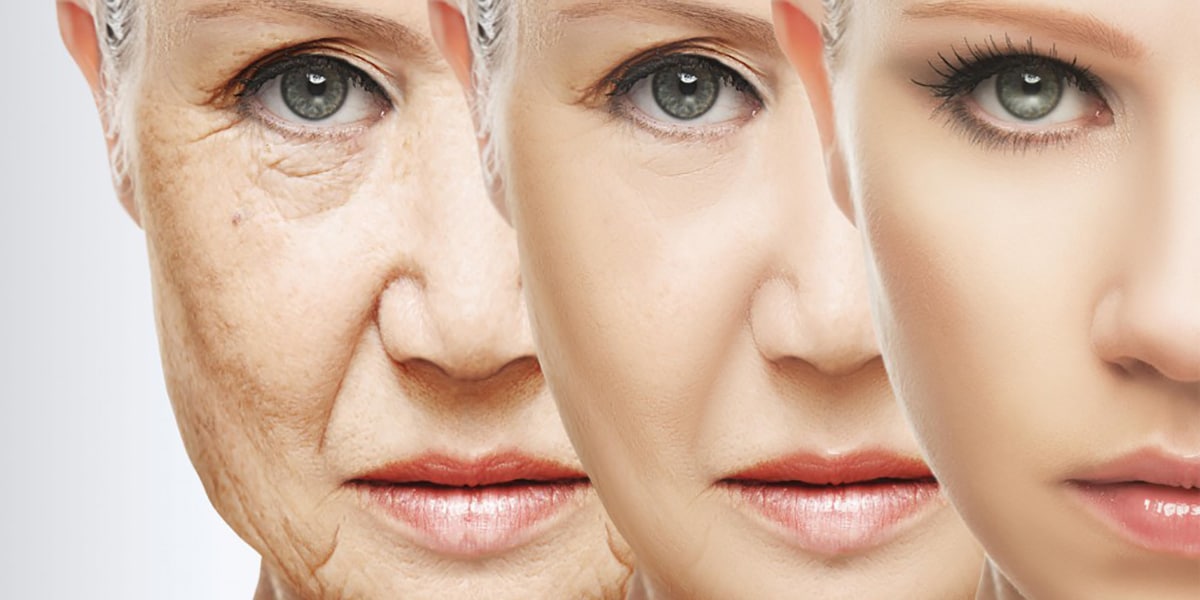With the new year comes fresh new beginnings and opportunities to start over. Yet, there’s one thing that doesn’t seem to stop: skin aging. Of course, skin aging is a process that affects all of us and comes naturally as we age. But what you may not know is that, besides your body’s natural aging process, there’s other factors that can actually speed up the aging of your skin. The major culprit? The sun. Ultraviolet (UV) rays from the sun can damage your skin and cause up to 90% of skin aging.¹ There’s a specific term for this called ‘photoaging’, which refers to the premature aging of your skin due to repeated exposure to UV radiation. Nowadays, there are even app features like the Sun Index Skin Analyzer that can help you analyze your skin age.
So how exactly does photoaging work? The sun emits two types of UV rays that can reach our skin: UVB rays, which cause sunburns, and UVA rays, which are responsible for early skin aging. UVA rays not only damage the surface of your skin but also penetrate deeper to break down important skin proteins, collagen and elastin. These proteins basically hold your skin together by making it firm and elastic and help keep your skin looking young and healthy. With less collagen and elastin, your skin loses its structure and flexibility and you’ll start to see skin aging symptoms like wrinkles, saggy skin, and spider veins.²Depending on your skin condition and lifestyle, your skin may not accurately reflect your real age. If you’re constantly under the sun without any sun protection, chances are your skin age could be older than your actual age. You can use the Sun Index Skin Analyzer app feature to find your skin age through a quick selfie. Using advanced image processing and AI technology, it analyzes your skin health and common skin problems like wrinkles and spots to find your skin age.
If your skin age is older than your real age, don’t despair. You can prevent early skin aging by protecting yourself from the sun’s rays. Sun Index can also help you reduce early skin aging by giving you personalized sun safety advice. Available for iOS and Android, it can tell you how much sunscreen to apply based on your size and clothing, and even send you reminders to reapply sunscreen.Sources:
- Canadian Dermatology Association. (n.d.). Photoaging. Retrieved December 21, 2017
- Darvin M.E., et al. (2014). Influence of sun exposure on the cutaneous collagen/elastin fibers and carotenoids: negative effects can be reduced by application of sunscreen, J. BioPhotonics. 7(9): 735-743. Retrieved December 21, 2017



